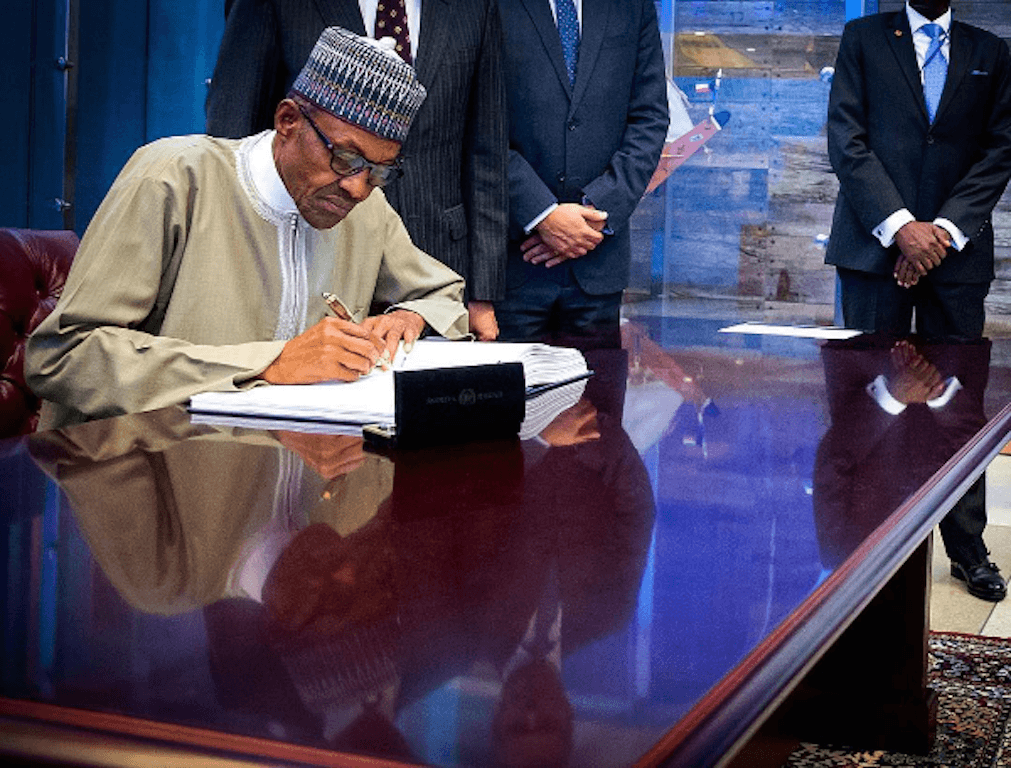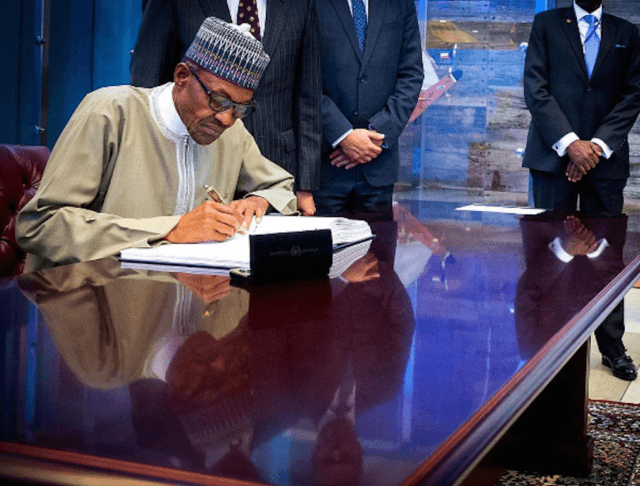Political Issues
Why It’s Important To Sign the Electoral Act Bill -By Jibrin Ibrahim

The whole country is on tenterhooks as Nigerians await presidential assent to the Electoral Act Amendment Bill transmitted to him on November 7. I am not aware of any comment from the Presidency about any objection to the latest version, which is the fourth sent to him. There are speculations that the president is reluctant to sign the Bill because he no longer supports the inclusion of the card reader in the law. The president has always insisted that it was the introduction of the card reader by the Professor Attahiru Jega-led Independent National Electoral Commission (INEC) that made him win the 2015 election, which might have been rigged but for the control measures imbedded in the device. The expectation, therefore, is that he should be very supportive of the Bill.
The word out there in the streets is that the president is no longer sure of winning the presidential election in a manner that is free and fair. The suspicion is that he might be planning to use the powers of incumbency to rig the next elections and the card reader would then become an impediment to his alleged plot to commit electoral fraud. Three political parties that appear to be fronts for the government have gone to court demanding that the president must not sign the Bill. This action has fuelled speculations on the rigging plan. Meanwhile, the president and his party have been quiet on the matter. The opposition Peoples Democratic Party (PDP), it’s presidential candidate, Atiku Abubakar and Senate President Bukola Saraki have raised alarms over the alleged rigging plot.
The position of the civil society is that the only way Nigerians would have the confidence that the 2019 elections would be free and fair is if the Bill is signed and the card reader and the new device for electronic transmission of results become law.

The reason why Nigerians were excited about the card reader in the 2015 elections was that it made it impossible to manufacture additional numbers for electoral results simply by fraudulently adding them on the basis of the numerical size of the electoral list. There was consternation, therefore, when some politicians in some states refused to allow the use of the card reader in 2015 and subsequently tried to justify their action in court by arguing that there was no compulsion in the Electoral Act that the card reader must be used to authenticate voters. Concerns following from the attempt to reverse the significant improvement to the electoral process in 2015, led to demands to clarify the law by making the use of the card reader a condition for voting.
I completely agree with the call on the president by the former president of the Nigeria Bar Association (NBA), Olisa Agbakoba (SAN), to immediately assent to the Bill if he is truly committed to a transparent electoral process in 2019. The chairmen of about 70 registered political parties, under the aegis of Inter Party Advisory Council (IPAC), have threatened to pull out of the 2019 general elections if the president fails to sign the Electoral Bill into law. IPAC’s national publicity secretary, Ikenga Ugochinyere, disclosed in a statement in Abuja after the council’s meeting, saying the bill, if signed into law, would ensure free, fair and credible elections. He added that the: “The delay/refusal to sign the bill will throw the country into the worst bloody electoral conquest and put INEC in a tight situation that will make free and credible election(s) impossible in 2019.”
It is indeed true that Nigerians would revolt against any attempt to move backwards in the march towards improved electoral integrity and the president should be advised to keep to the straight and narrow path leading to free, fair and credible elections. The loud silence of the president on the matter has been the cause of all the concern and anguish of Nigerian democrats on the matter. It is not a partisan issue, as all democrats in Nigeria are firmly on the side of the card reader. President Buhari should dispel the concerns of Nigerians and assure us that he remains a strong believer of the smart card reader.
I am particularly vexed on the matter because in the previous version of the Bill sent to the president, the provision for the card reader had been removed. I had complained about the missing provision in this column in September, quoting Senator Ita Enang, senior special assistant (SSA) to the president on National Assembly matters (Senate), who refuted rumours circulation at that time that the president refused to sign the then version three of the Bill because he was opposed to the clause on card reader in the Bill. Enang said categorically that: “For the avoidance of doubt, I hereby state expressly that the card reader provision addressed by section 49 of the Principal Act was completely, expressly and unequivocally excluded”. I had checked the famous version three of the Bill and the provision was definitely not included.
The Bill has gone through an interesting journey. The first version of the Bill, which was signed by the clerk of the National Assembly on February 20, 2019 justifies the revised Bill on the merit of the card reader provision. The Explanatory Note on the first page of the Bill expressly states that the amendment was necessary: “to recognise the use of the card reader and other technological devises in elections”. Section 19 of the Amendment then provides that Section 49 of the Principal Act is amended as follows: “The Presiding Officer shall use a smart card reader or any other technological devise that may be prescribed by the Commission (INEC) for the accreditation of voters, to verify, confirm or authenticate the particulars of the voter.” The fulcrum of the entire amendment process was therefore to make the card reader a key legally binding element of our electoral process.
The third version of the Electoral Act signed by the clerk of the National Assembly on August 2, 2018 and sent to the president for his assent had a totally different Explanatory Note simply stating that the amendment was: “to further improve the electoral process”. This was done with no reference to the card reader, which was expressly identified in the two earlier versions as the most important element in the reforms designed to improve the electoral process. It was unfortunate that the presiding officers of the National Assembly have kept studiously quiet on the disservice they have done to the democratic process by removing the card reader in the latest Bill. The current Bill before the president very clearly has the provision of Section 49(2) on the Smart Card Reader. Mr. President, please sign it now.
A professor of Political Science and development consultant/expert, Jibrin Ibrahim is a Senior Fellow of the Centre for Democracy and Development, and Chair of the Editorial Board of PREMIUM TIMES.


















